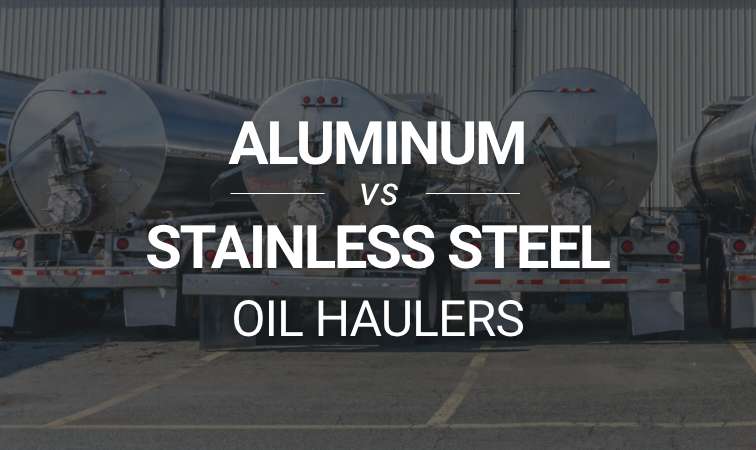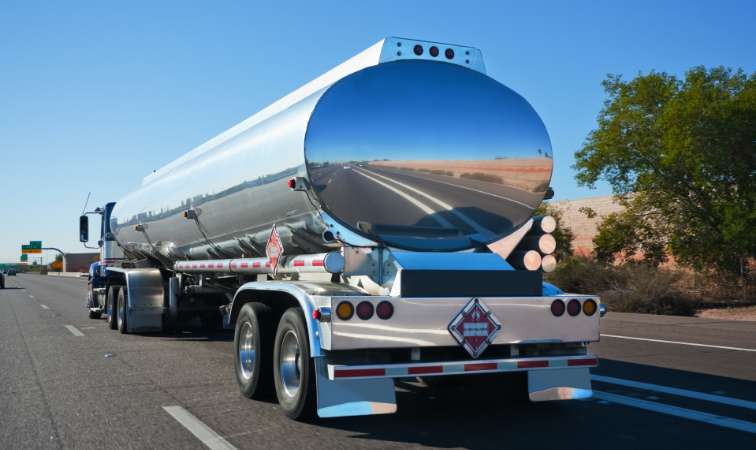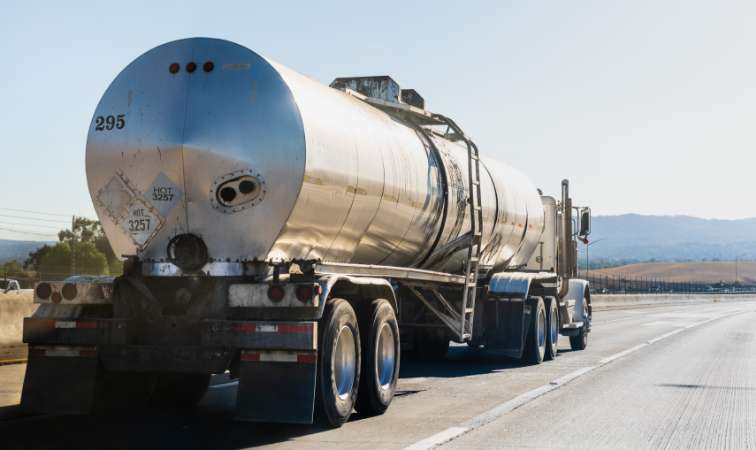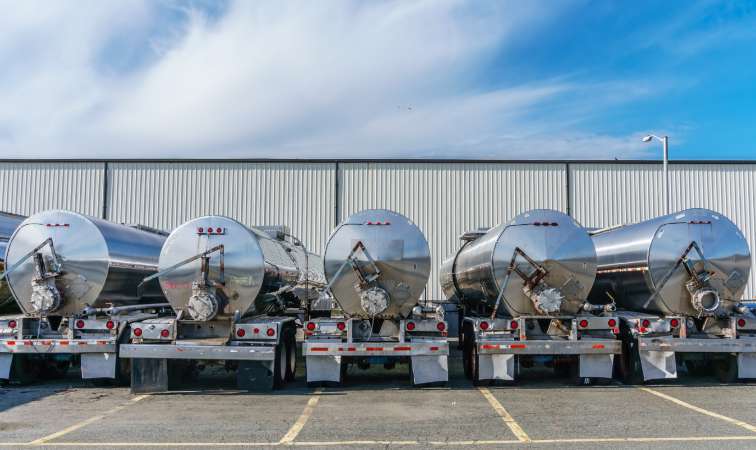18 Mar Aluminum vs. Stainless Steel Oil Haulers
For years, aluminum was considered the best material for oil haulers, but stainless steel has become a popular alternative in recent years. When it comes to hauling crude oil, you have to compare aluminum vs. stainless steel as your two tried-and-true tanker options. So, what's the real difference between stainless steel and aluminum oil haulers?

This comparison guide will delve into aluminum vs. stainless steel trailers, exploring the advantages and disadvantages of each for hauling crude oil. We'll also show you how Dragon Products can help you choose the best liquid tank trailers for your needs.
Aluminum Oil Tank: Pros and Cons

We've come a long way since the early days of fuel delivery when oil was transported in wooden barrels. These days, you have a choice between two materials: aluminum vs. stainless steel. First, we'll discuss the aluminum oil tank and why it may (or may not) be your best option.
Benefits of Crude Oil Hauling in an Aluminum Tank
Like most business decisions, choosing a tank for crude oil hauling often comes down to the initial cost. Aluminum tanks are less expensive to purchase than their stainless steel counterparts. Another advantage is that aluminum haulers are lightweight. This means they consume less gas and can haul more product on each run – so you save money on each tank's trip.
The Downside of Aluminum Tanks
Reasons for the failure of the epoxy coating in aluminum tanks include:
- Abrasive Materials: Certain ingredients in crude oil – such as sand – can cause corrosion.
- Antifreeze: The methanol used as an antifreeze causes the epoxy coating to soften and fail.
- Chemicals: Well fracs use chemicals that can deteriorate the lining.
Of course, all oil haulers will last longer if properly cared for. The EPA's Dangerous Goods Tank Vehicle Inspection Manual offers a useful checklist to help you keep your tanker in top condition.
Stainless Steel Trailer: Pros and Cons

Advantages of Stainless Steel Trailers
Trucking companies might choose a stainless tanker truck for a few reasons. First, it doesn't require an epoxy lining – or any other type of coating – to prevent corrosion. For that matter, a stainless steel trailer probably won't need maintenance at all. Other advantages that stainless steel tankers enjoy include the following:
- Better Fatigue Strength: A stainless tanker can handle more stress than aluminum tankers without sustaining damage.
- Sturdier for Harsh Terrain: Because most crude oil operations are located in rough terrain, stainless steel's hardiness is an essential benefit over aluminum haulers.
- Longer Lasting: The average lifespan of a stainless steel trailer is about ten years vs. five years for its aluminum cousin.
The Downside of Hauling Crude Oil in Stainless Steel Trailers
Weight plays a vital role in choosing a crude hauler, and on this score, stainless steel trailers wind up in the losing column. Due to their size and material thickness, a steel vs. aluminum trailer weighs significantly more, resulting in higher operating fuel costs. And when you factor in weight restrictions, you're able to carry less cargo per load, which also increases your operating expenses. Finally, the initial outlay for a stainless tanker is higher than that of aluminum – but keep in mind, this is because stainless steel trailers typically last about twice as long.
Which Crude Hauler Is Right for Your Needs?

To determine whether you're better off with aluminum vs. stainless steel oil haulers (or vice-versa), let's look at some scenarios truck companies take into consideration.
- Long-Term Usage: If you're going for the long haul, stainless steel is your best bet. It lasts longer and requires almost no maintenance along the way.
- Straight Highway Hauls: Aluminum is your most cost-effective choice in this instance. Highways won't put devastating wear and tear on your trailer, and you'll be able to carry more cargo and save on fuel costs.
- Rough Conditions: Stainless steel does a better job of standing up to rugged terrain. If your oil haulers travel a lot of back roads and rutted trails, stainless steel is the better option.
- Green Matters: A lighter weight means aluminum haulers use less diesel to get the job done – a win for the environment.
It probably goes without saying that whichever type of hauler you choose, make sure the driver behind the wheel is fully trained on driving a tanker.
Dragon Products Has the Aluminum or Stainless Steel Oil Haulers You Need
Once you've had a chance to weigh the benefits of aluminum vs. stainless steel oil haulers for your business, it's time to pay us a visit. For 50+ years, we've been U.S. family-owned and operated with state-of-the-art manufacturing facilities to produce equipment for a wide range of applications. Because we build our products in-house, Dragon Products is able to control the quality and respond quickly to your needs. Contact us today. Our experienced staff looks forward to helping you choose the right equipment for your fleet!



Sorry, the comment form is closed at this time.